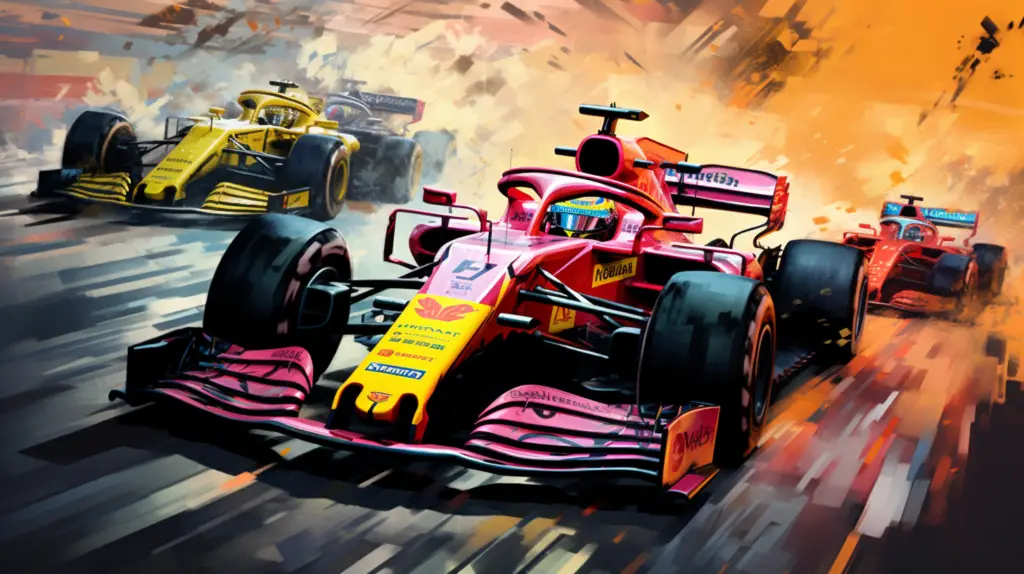The thrilling world of Formula One (F1) racing has been setting hearts aflutter since its inception in the 1950s. From awe-inspiring displays of speed and precision, to intense rivalries and edge-of-the-seat excitement, F1 never fails to captivate its global audience. Over its long history, F1 has been a theatre for innovation, individual brilliance, team spirit, and nail-biting competition, making it one of the most prestigious sports on the planet.
In this article, we’ll delve into 25 interesting facts about F1, shedding light on some lesser-known aspects of this fascinating sport.
1. Birth of F1: Formula One officially began in 1950 with the British Grand Prix at Silverstone. Although car racing has been around since the early 20th century, F1 established a specific set of rules for all competing teams.
2. Not always about speed: The slowest Grand Prix in F1 history was the 1950 Monaco Grand Prix, which was won with an average speed of just 64.06 km/h.
3. First Night Race: Singapore hosted the first night race in the history of Formula One in 2008. It has since become one of the highlights of the F1 calendar.
4. Deadly Turn: The Tamburello corner at the Imola Circuit, which claimed the life of three-time world champion Ayrton Senna, is considered one of the deadliest turns in F1 history.
5. Safety First: After Senna’s death in 1994, F1 underwent a massive overhaul in safety measures. The result is that no driver has been killed in a race since then.
6. The F1 Logo: The iconic F1 logo, used from 1994 to 2017, has a hidden number “1” in the white space between the ‘F’ and the red streaks.
7. Most Successful Driver: As of 2021, Lewis Hamilton and Michael Schumacher share the record for the most World Drivers’ Championships, each having won seven titles.
8. Oldest Winner: Luigi Fagioli is the oldest winner in F1 history. He won the 1951 French Grand Prix at the age of 53.
9. Youngest Winner: Max Verstappen holds the record for being the youngest F1 winner. He won the 2016 Spanish Grand Prix at just 18 years old.
10. Fastest Pit Stop: Red Bull Racing holds the record for the fastest pit stop, achieving an astonishing time of 1.82 seconds at the 2019 Brazilian Grand Prix.
READ MORE: 20 Interesting Facts About Horses and How They Are Related To Rhinos
11. The Monza Track: Italy’s Monza Circuit is the fastest track in F1, with drivers reaching average speeds of up to 263 km/h.
12. Most Consecutive Wins: Sebastian Vettel holds the record for the most consecutive wins, with nine victories in 2013.
13. Record Number of Teams: The 1953 German Grand Prix saw a record 34 teams competing, the most in F1 history.
14. Longest Race: The 2011 Canadian Grand Prix is the longest F1 race ever, lasting 4 hours, 4 minutes, and 39.537 seconds.
15. Fuel Consumption: An F1 car typically burns around 75 litres of fuel during a race, which translates to about 2.5 miles per gallon.
16. Cockpit Temperatures: Drivers can experience cockpit temperatures up to 50 degrees Celsius, contributing to significant physical strain during a race.
17. Driver’s Physical Endurance: An F1 driver can lose approximately 3 kg of weight during a single race due to extreme conditions and high G-forces.
18. Women in F1: As of 2021, only two women have ever raced in F1 – Maria Teresa de Filippis and Lella Lombardi.
19. Highest RPM: The BMW M12/13 1.5 litre turbocharged engine, used in the 1980s, holds the record for the highest RPM in an F1 car, reaching a staggering 60,000 RPM.
20. The Power of Downforce: At high speed, an F1 car generates such significant downforce that, theoretically, it could drive upside down on the roof of a tunnel.
21. Expensive Steering Wheels: An F1 steering wheel can cost up to $50,000 and has between 20 and 25 buttons, knobs, and switches to control various aspects of the car.
22. Monaco Street Circuit: The Monaco Grand Prix is the only F1 race that does not adhere to the FIA’s mandated 305-kilometre (189-mile) minimum race distance.
23. F1 and Rain: Intermediate tires are used when the track is damp or wet, but not soaked. They can displace approximately 25 litres of water per second at full speed.
24. Winning Margin: The largest winning margin in an F1 race was achieved by Jim Clark in the 1963 Belgian Grand Prix, where he finished nearly five minutes ahead of Bruce McLaren.
25. F1 Cars in Space: Technically, if an F1 car were launched into space at full speed, it could reach the moon in less than 6 months, considering an average speed of 375 km/h.
The world of Formula One is one of technology, passion, danger, and thrilling speeds. These 25 interesting facts only begin to scratch the surface of the sport’s rich history and the remarkable feats it showcases. As fans, we continue to be enthralled by the sport’s evolution, its legendary figures, and the mesmerising spectacle it offers. Here’s to many more years of F1 racing!


